"As we approach peak snowboarding season, Informatica Cloud Data Governance and MDM solutions help us maintain a high bar for data quality and management. By empowering our teams with access to the right data at the right time and the know-how to use it, we can predict demand accurately and build a product strategy based on customer needs."
Explore these MDM features delivering faster time to value
Comprehensive capabilities
Get multidomain MDM, data integration, quality, enrichment and governance in one cloud-native solution.
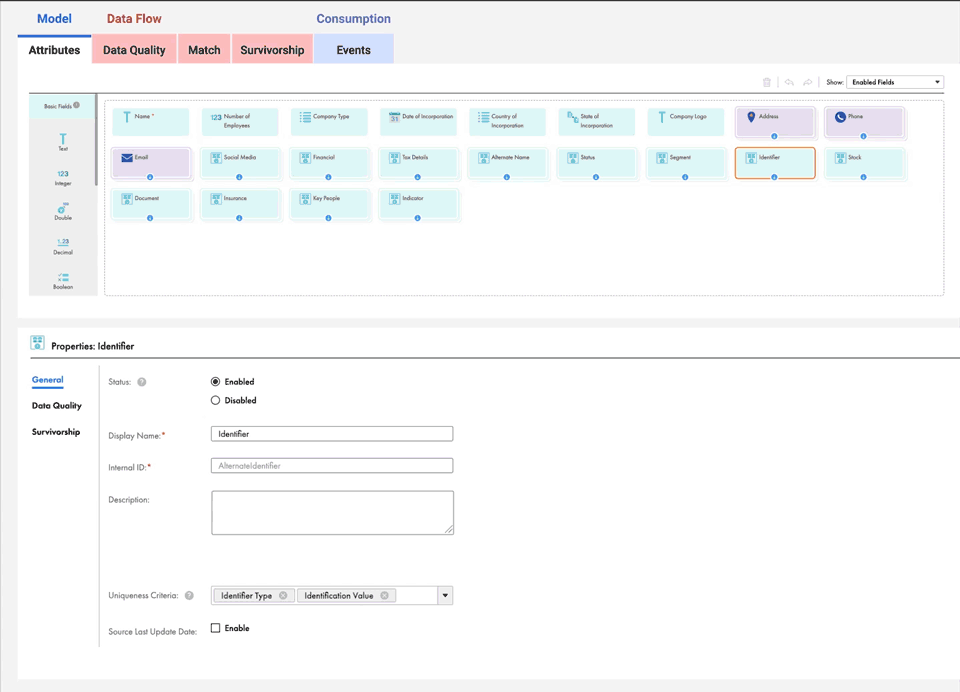
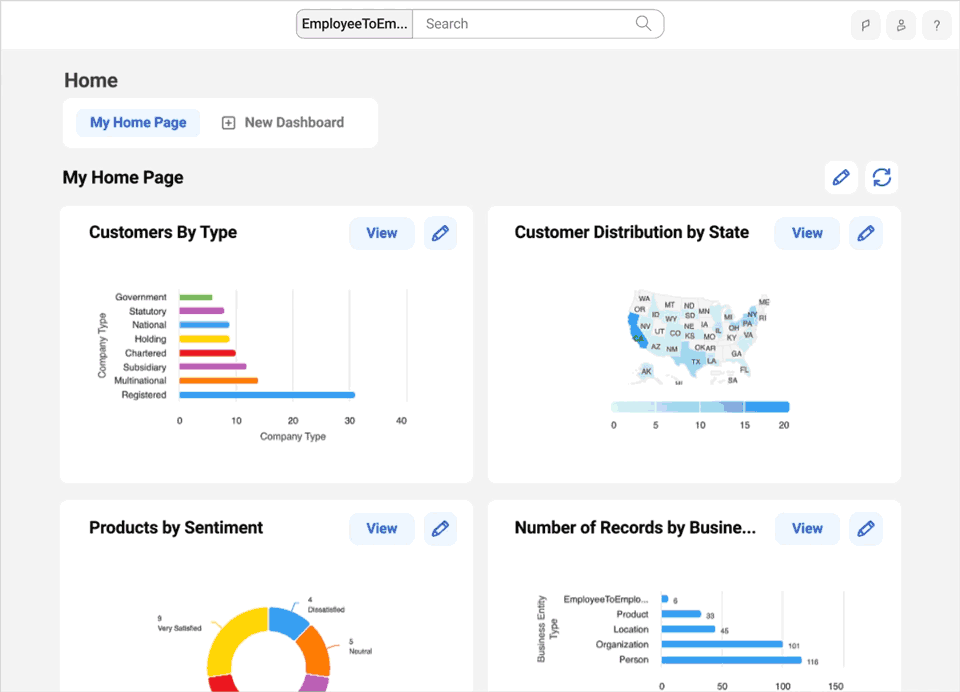
Modern user experience
Increase self-service with easy to use business-oriented user interfaces and automation.
Broad connectivity
Integrate and share master data anywhere using low-code/no-code development for applications and data sources.
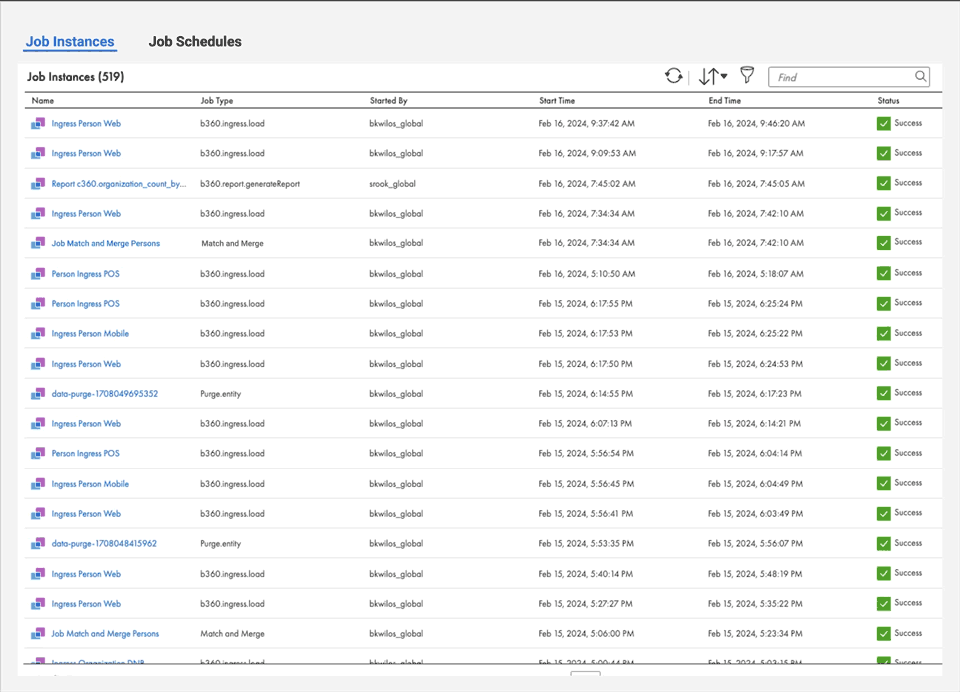
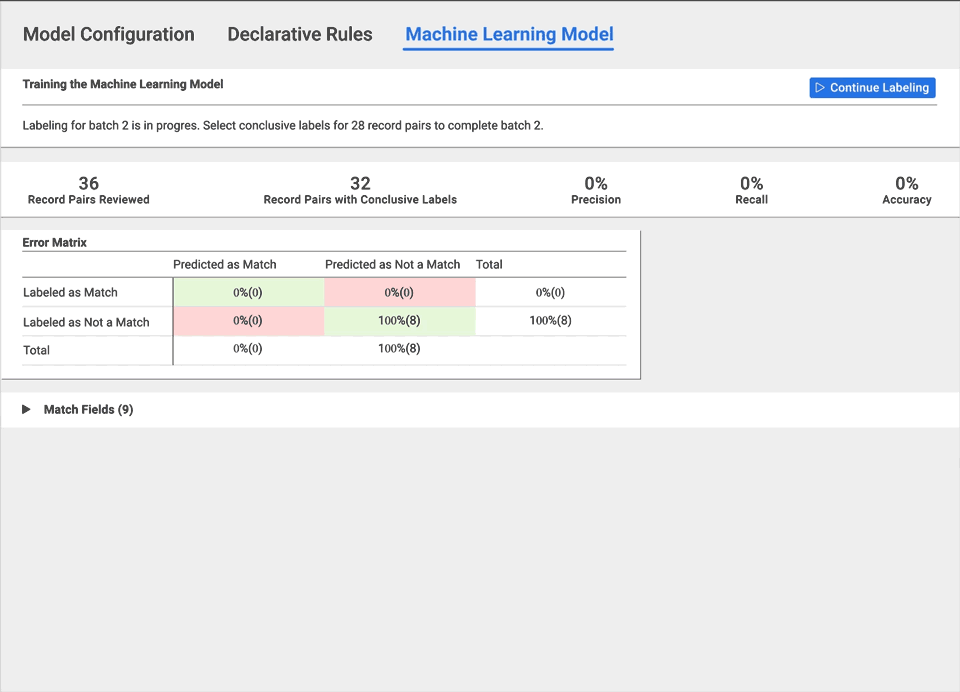
AI-driven match and merge
Get advanced, AI-powered match tuning and rule recommendations to address data variations with high accuracy.
Single version of the truth
Get a contextual 360-degree view of business-critical data, including customer, product, supplier or reference data.
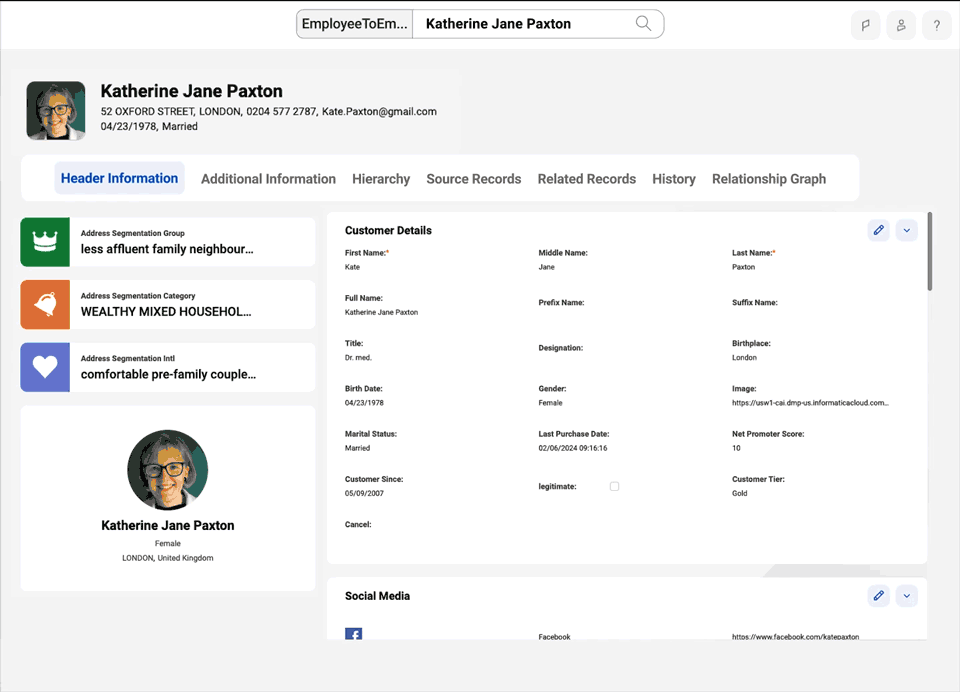
Explore MDM and 360 Applications
As a leading part of the AI-powered Informatica Intelligent Data Management Cloud (IDMC), Master Data Management and 360 Applications works with a range of complementary services.
Your essential resources for MDM and 360 Applications
MDM and Data Governance Summit |
Spring 2024

4 Easy Steps to a 360-degree View of Customers, Suppliers and More


The Forrester Wave™: Master Data Management, Q2 2023

DATA SHEET
Digital Business Requires Intelligent Master Data Management
FAQ about MDM and 360 Applications
MDM is the process of consolidating and maintaining a single, high-quality record for customers, products, suppliers etc. within a business by integrating data from various sources. This unified master data provides a reliable and consistent foundation for accurate reporting, error reduction, elimination of redundancy and informed decision-making across the organization.
Customer 360 is a shared, single view of your customer across an organization. It includes not only who the customer is but also their relationships, activities and inferred attributes.
PIM is the centralized management of product information and digital assets to enhance the product experience and enable effective sales across multiple channels. It serves as a master-data driven platform for collecting, enriching and distributing product information to various business functions.
SRM is a structured approach to effectively managing all supplier relationships. A good strategy for SRM helps you maximize the business value of your supplier interactions. Relationships can be well-maintained with the aid of vendor data (e.g. contact information, products and services), lifecycle management, workflows (e.g. onboarding), hierarchies, risk, performance and compliance.
Reference Data Management (RDM) involves organizing and maintaining consistent, standardized reference data across an organization to ensure accuracy and coherence in various systems and processes.












